 The First World War in Perspective
The First World War in Perspective
History
Online short course
Offered each term from January 2014
The First World War is widely regarded as the defining event of the twentieth century, and continues to fascinate and appal in equal measure. This course seeks to explain why and how the war was fought, and to understand why its legacy remains relevant almost a century after it began.
www.conted.ox.ac.uk/V100-129
English Poetry of the First World War
Literature
Online short course
Offered each term from Janurary 2014
Some of the most powerful and moving English poetry of the modern period was written during or about the First World War. This course examines the context of that poetry and issues involved in studying it by exploring the life and writing of three major war poets: Owen, Rosenberg and Sassoon, amongst others.
www.conted.ox.ac.uk/Q200-7
First World War Poetry
History, Literature
Dayschool: Sat 25 Jan 2014 in Newbury
1914-1918 was awash with poetry, 'Modernist' and 'Georgian', pacifist and patriotic, by men and by women, combatants and civilians, and published in individual volumes, anthologies, and newspapers. Propaganda and remembrance, humour and pathos, co-existed, if uneasily. The output of poetry continued well after the Armistice and has had lasting resonance, profoundly influencing the literary interpretations of later wars and continuing to be one of the prisms through which war is culturally interpreted and 'understood' in the early 21st century.
www.conted.ox.ac.uk/Q200-151
Investigating First World War Archaeological and Architectural Legacies
Archaeology, Architectural History
Dayschool: Wed 5 Feb 2014 in Oxford
Archaeological techniques are increasingly being applied to study of First World War battlefields in France and the Near East, and on training areas in England. The aim of this course is to inform curators, field practitioners, consultants, and members of voluntary and community groups of the diverse physical legacy that the war has left in England.
www.conted.ox.ac.uk/V400-326
Modernisms: The Art of Extremes 1914 1945
History of Art
Weekly classes programme
Thu 24 Apr to Thu 26 Jun 2014 in Oxford
The period 1914-45 is the high test of artistic modernism as the forces ranged against it coalesce and the term itself is reforged; never again will the debates about the public role of art assume such critical importance - or prove so vitally engaging.
www.conted.ox.ac.uk/V350-152
Picturing Armageddon: The First World War in Painting, Photography and Cinema
History of Art
Weekly Classes programme
Tue 22 Apr to Tue 24 Jun 2014 in Oxford
2014 marks the 100th anniversary of the outbreak of World War I. This course will investigate the many ways in which the experience of the 'War to end all wars' has been reflected through art, photography and film. We shall explore the early development of war photography, and will examine the work of the official 'War Artists'. We shall then investigate the depiction of the war in the popular illustrated press, before turning to the many and varied ways in which cinema has dealt with the memory of the First World War - from such early Hollywood classics as 'All Quiet on the Western Front' to more recent cinematic epics as 'Lawrence of Arabia'. Finally we shall conclude by discussing what we shall have learned of the relationships between fact and fiction in the various ways in which the First World War was, and has subsequently been, imagined and depicted.
www.conted.ox.ac.uk/V350-169
The Art of War
History
Weekly Classes
Thu 24 Apr to Thu 26 Jun 2014 in Oxford
From the first crude caveman etchings to the the imagery of 'Top Gun' aviators, warlike images have beguiled the human race. Artefacts, paintings, scultures, buildings and weapons themselves have reflected the significance of the warrior across centuries and diverse cultures. We will examine and analyse these phenomena by looking at the Art of War in its broadest sense and concentrating on Western civilisation.
www.conted.ox.ac.uk/V100-157
Poetry of the First World War
Literature
Oxford Experience Summer School
Sun 13 to Sat 19 Jul 2014 in Oxford
A hundred years ago the civilised world was torn apart by one of the bloodiest wars in human history the First World War. Young men in their thousands went to their deaths on the battlefields. The war was a catastrophe both on a personal and on a cultural level; it was a watershed in European civilisation. Paradoxically, it elicited a great creative burst of poetry as many of the combatants tried to come to terms with, and make some sense out of, their experience of carnage and loss.
www.conted.ox.ac.uk/Q220-89
The First World War in Perspective
History
Oxford University Summer School for Adults (OUSSA)
Sat 12 to Sat 19 Jul 2014 in Oxford
The First World War continues to fascinate and appal in equal measure. Popular publications and media outputs often highlight the carnage in the trenches on the Western Front and raise questions about the war's ultimate purpose.
www.conted.ox.ac.uk/V100-224
1914-2014: One Hundred Years of War
Literature
Oxford University Summer School for Adults (OUSSA)
Sat 19 to Sat 26 Jul 2014 in Oxford
This is the centenary of the beginning of the Great War, the writing about which entered our collective consciousness. Since the achievements of the Great War poets, conflicts have continued to cause people to write about their personal experiences in startling and memorable ways, whether they are combatants themselves or the families and lovers left behind. We shall explore writing about the world wars, Vietnam, 9/11, Iraq and Afghanistan, in poetry, fiction and memoirs.
www.conted.ox.ac.uk/Q220-119
British Art of the First World War
History of Art
Oxford University Summer School for Adults (OUSSA)
Sat 26 Jul to Sat 2 Aug 2014 in Oxford
In the centenary of the beginning of the "Great War", our course examines the production of magnificent art from such luminaries as Paul Nash, Richard Nevinson and William Orpen. Despite many dangers and difficulties, our artists created images of "terrible beauty" from scenes of conflict and desolation. We examine the compelling works of many less prominent painters such as Eric Kennington and Muirhead Bone, and conclude with the huge canvases commissioned for the never-realised Halls of Remembrance. A visit to Stanley Spencer's magnificent Sandham Memorial Chapel is incorporated within the course.
www.conted.ox.ac.uk/V350-243
 Karen has taught continuously for the Department since Michaelmas term 1963 over 50 years on weekly classes, day and weekend schools and summer schools, including the Oxford Summer School for Adults (OUSSA). 'I suppose you can say I've taught the equivalent of 350 termly classes, 100 OUSSA weeks, and many extras,' said Karen.
Karen has taught continuously for the Department since Michaelmas term 1963 over 50 years on weekly classes, day and weekend schools and summer schools, including the Oxford Summer School for Adults (OUSSA). 'I suppose you can say I've taught the equivalent of 350 termly classes, 100 OUSSA weeks, and many extras,' said Karen.
 The award has been used to develop training workshops that will enable research scientists, doctoral students, graduates and professionals from across the country in the environmental sciences and management to attend at no cost. The funding also covers accommodation and course materials for the duration of each workshop.
The award has been used to develop training workshops that will enable research scientists, doctoral students, graduates and professionals from across the country in the environmental sciences and management to attend at no cost. The funding also covers accommodation and course materials for the duration of each workshop.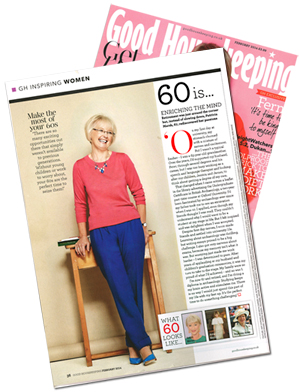 Tricia, who decided to pursue her lifelong interest in Archaeology as she neared retirement from her career as a speech and language specialist, fit the bill.
Tricia, who decided to pursue her lifelong interest in Archaeology as she neared retirement from her career as a speech and language specialist, fit the bill.  She receives a first prize of 1,000 euros and publication in Southword Literary Journal. She will be flown to Ireland to take part in the Cork Spring Literary Festival.
She receives a first prize of 1,000 euros and publication in Southword Literary Journal. She will be flown to Ireland to take part in the Cork Spring Literary Festival.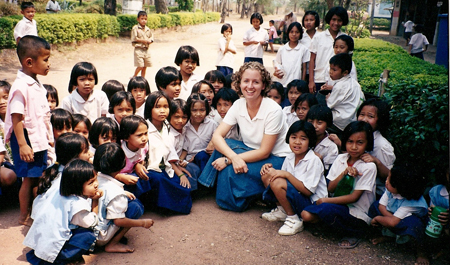
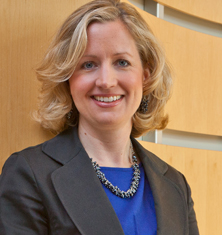 'The 14th of January 2014 was a watershed moment for these children when Costa Rica became the tenth country to ratify the protocol, putting it into force in the 10 ratifying nations,' said Sara.
'The 14th of January 2014 was a watershed moment for these children when Costa Rica became the tenth country to ratify the protocol, putting it into force in the 10 ratifying nations,' said Sara.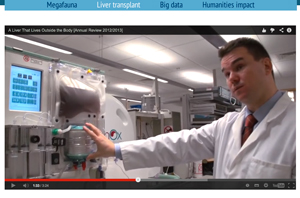
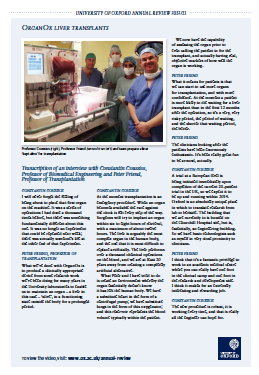
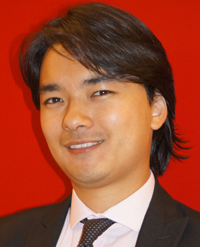 For Sandro Sato, a 2nd year student on our
For Sandro Sato, a 2nd year student on our 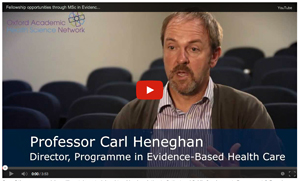
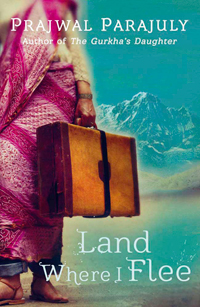
 Prajwal, who finished the Master's programme in 2012, had no sooner started the course than he signed a two-book deal with Quercus to publish his collection of short stories. The Ghurka's Daughter, and Land Where I Flee, a novel. Only 26 at the time, Prajwal was the youngest Indian national to sign an international book deal.
Prajwal, who finished the Master's programme in 2012, had no sooner started the course than he signed a two-book deal with Quercus to publish his collection of short stories. The Ghurka's Daughter, and Land Where I Flee, a novel. Only 26 at the time, Prajwal was the youngest Indian national to sign an international book deal.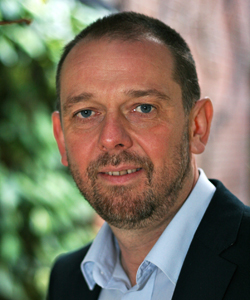 The award will ensure that Dr Griffiths's departmental duties are covered by a replacement post for the next academic year, allowing him to devote the time to writing up the Birsay-Skaill Landscape Archaeology Project, which he has led since its inception in 2003.
The award will ensure that Dr Griffiths's departmental duties are covered by a replacement post for the next academic year, allowing him to devote the time to writing up the Birsay-Skaill Landscape Archaeology Project, which he has led since its inception in 2003. 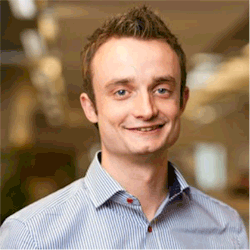 Bio: Dr James Sheppard is a MRC Research Fellow in the Nuffield Department of Primary Health Care Sciences, University of Oxford. Dr Sheppard's interests are in blood pressure management and cardiovascular disease prevention in Primary Care. As part of his fellowship, Dr Sheppard is carrying out work to improve the diagnosis and management of hypertension in primary care in the Predicting Out-of-Office Blood Pressure in the clinic (PROOF-BP). Dr Sheppard is also a member of the NIHR Stoke Research Network Primary Care Clinical Studies Group and the British Hypertension Society.
Bio: Dr James Sheppard is a MRC Research Fellow in the Nuffield Department of Primary Health Care Sciences, University of Oxford. Dr Sheppard's interests are in blood pressure management and cardiovascular disease prevention in Primary Care. As part of his fellowship, Dr Sheppard is carrying out work to improve the diagnosis and management of hypertension in primary care in the Predicting Out-of-Office Blood Pressure in the clinic (PROOF-BP). Dr Sheppard is also a member of the NIHR Stoke Research Network Primary Care Clinical Studies Group and the British Hypertension Society. 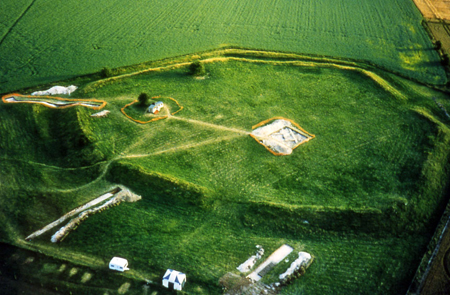
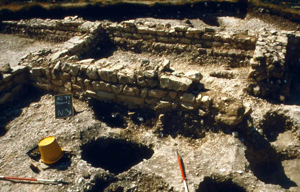 Alfred's Castle was excavated for 12 weeks spread out over the years 1998-2000. The long period of post-excavation has been due to the amount of material recovered and the complexity of the deposits within the site.
Alfred's Castle was excavated for 12 weeks spread out over the years 1998-2000. The long period of post-excavation has been due to the amount of material recovered and the complexity of the deposits within the site. 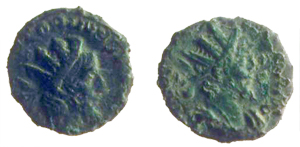 The other aspect of Alfred's Castle which makes it of national importance is the long chronological span of the site. There is evidence of Early Bronze Age round barrows (c. 1,800 BC), a series of Late Bronze Age linear ditches (c. 800 BC), the Iron Age enclosure (c. 500-200 BC), a Romano-British farmhouse (c. AD 100-300) and then Late Saxon activity (c. AD 10th-11th century). This is unusual and makes an important contribution to current debates about continuity of use and perceptions of the past in the past. The presence of the Roman occupation adds greatly to the amount of material remains excavated and processed and is itself important for being one of the earliest Roman settlements on this part of the chalk downs, established probably in the late 1st century AD.
The other aspect of Alfred's Castle which makes it of national importance is the long chronological span of the site. There is evidence of Early Bronze Age round barrows (c. 1,800 BC), a series of Late Bronze Age linear ditches (c. 800 BC), the Iron Age enclosure (c. 500-200 BC), a Romano-British farmhouse (c. AD 100-300) and then Late Saxon activity (c. AD 10th-11th century). This is unusual and makes an important contribution to current debates about continuity of use and perceptions of the past in the past. The presence of the Roman occupation adds greatly to the amount of material remains excavated and processed and is itself important for being one of the earliest Roman settlements on this part of the chalk downs, established probably in the late 1st century AD. 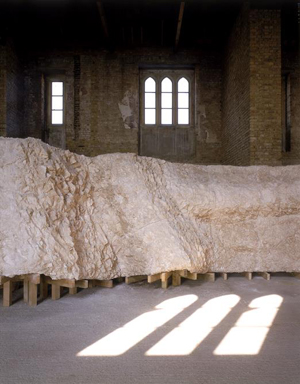 An unusual element of the excavation was that artist in residence, Simon Callery, produced a life-size casting of one of the trenches which was then displayed in several galleries.
An unusual element of the excavation was that artist in residence, Simon Callery, produced a life-size casting of one of the trenches which was then displayed in several galleries.  Mst alumnus James Benmore's second novel, Dodger of the Dials, is due out on 5 June. It's the sequel of James' first novel, Dodger, which tells the continuing story of Jack Dawkins from Oliver Twist. Dodger of the Dials is available for pre-order on Amazon:
Mst alumnus James Benmore's second novel, Dodger of the Dials, is due out on 5 June. It's the sequel of James' first novel, Dodger, which tells the continuing story of Jack Dawkins from Oliver Twist. Dodger of the Dials is available for pre-order on Amazon: 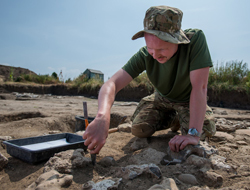 The Certificate in Archaeology is the Department's 'flagship' undergraduate entry-level award in Archaeology. Its current format is a two-year part-time course consisting of regular weekday evening teaching sessions, plus some weekend field visits and a summer training excavation week.
The Certificate in Archaeology is the Department's 'flagship' undergraduate entry-level award in Archaeology. Its current format is a two-year part-time course consisting of regular weekday evening teaching sessions, plus some weekend field visits and a summer training excavation week. 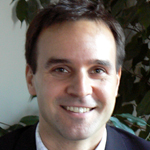 The idea for the tool came from Dr Ruhs whilst he was writing the Department's new online course, International Labour Migration: Economics, Politics and Ethics. Dr Ruhs had a number of ideas for learning activities that build on the benefits of having an international student cohort for a course looking at global issues and wanted a way for student-generated information to be shared in a visual way. Working with TALL, the Department's specialist online development team, the InfoMap tool was created to achieve this.
The idea for the tool came from Dr Ruhs whilst he was writing the Department's new online course, International Labour Migration: Economics, Politics and Ethics. Dr Ruhs had a number of ideas for learning activities that build on the benefits of having an international student cohort for a course looking at global issues and wanted a way for student-generated information to be shared in a visual way. Working with TALL, the Department's specialist online development team, the InfoMap tool was created to achieve this. 'Languages have always been associated with lifelong learning. Learning a language is fun and challenging, and nurtures a global outlook, while more specific benefits include employability, personal and professional development and networking. Such a wide range of needs and interests continues to shape the thriving languages and cultural studies programme at the Department for Continuing Education.'
'Languages have always been associated with lifelong learning. Learning a language is fun and challenging, and nurtures a global outlook, while more specific benefits include employability, personal and professional development and networking. Such a wide range of needs and interests continues to shape the thriving languages and cultural studies programme at the Department for Continuing Education.' The programme was designed to help the delegates write a strategic development plan for their university, which will also provide a model for other educational institutions in Myanmar.
The programme was designed to help the delegates write a strategic development plan for their university, which will also provide a model for other educational institutions in Myanmar. The delegates also met the Vice Chancellor, Andrew Hamilton. Dame Elish Angiolini, Principal of St Hugh's College, hosted a lunch and showed the delegates the rooms where Aung San Suu Kyi had studied. Visits included a behind the scenes tour of the Oxford University Museum of Natural History and a specialist visit to the Oxford Botanic Garden to discuss research into medicinal plants.
The delegates also met the Vice Chancellor, Andrew Hamilton. Dame Elish Angiolini, Principal of St Hugh's College, hosted a lunch and showed the delegates the rooms where Aung San Suu Kyi had studied. Visits included a behind the scenes tour of the Oxford University Museum of Natural History and a specialist visit to the Oxford Botanic Garden to discuss research into medicinal plants.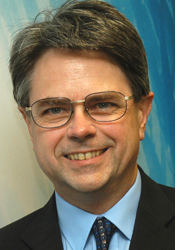 The European Physical Society is the umbrella organization for national physical societies across Europe, and represents about 100,000 professional physicists.
The European Physical Society is the umbrella organization for national physical societies across Europe, and represents about 100,000 professional physicists.